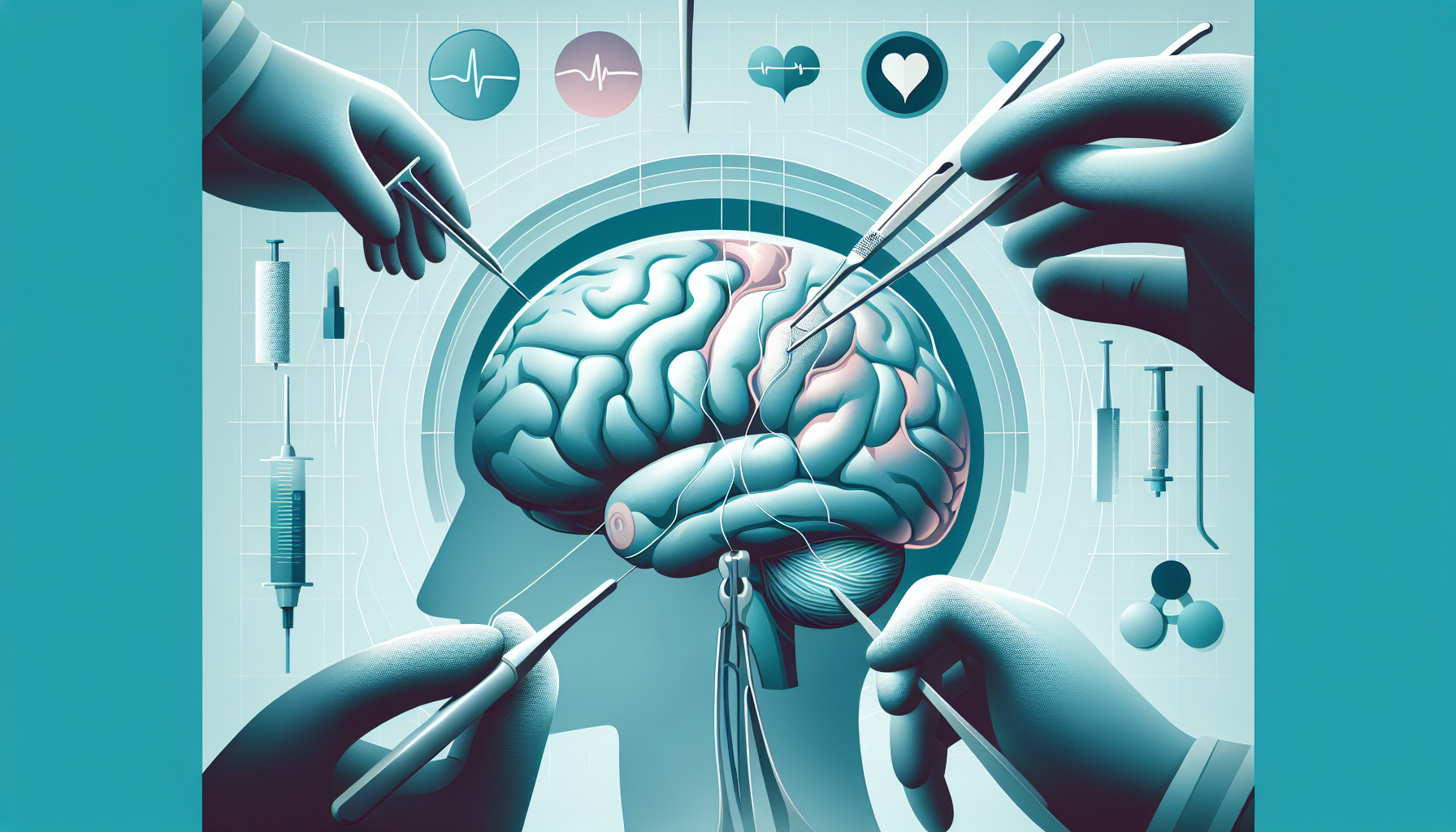Our Summary
This research paper is about the ways doctors monitor the brain’s functions during awake brain surgery, which is important for maintaining patients’ cognitive abilities and quality of life after the operation. The authors reviewed recent research to see if there have been any changes in the techniques used to map the brain during surgery.
Previously, in 2018, the main focus was on monitoring language abilities. However, after reviewing over 5000 papers published between 2017 and 2023, the authors found that more and more studies are now also looking at other brain functions like spatial awareness, social cognition, and executive functions (like problem-solving, planning, and attention).
While language is still the most commonly tested brain function during awake brain surgery, the authors found that a wider range of tests are now being used. This shows that the field is developing rapidly. However, they also noted that there is still a need for more tests to monitor certain areas, like executive functions and memory, during surgery.
FAQs
- What was the main focus of monitoring during awake brain surgery as per 2018 research?
- How has the focus of brain function monitoring during awake brain surgery changed according to recent research?
- What are the areas identified by the authors where more tests are needed during awake brain surgery?
Doctor’s Tip
One helpful tip a doctor might tell a patient about craniotomy is to discuss any concerns or questions they have with their healthcare team. It is important for patients to be informed about the procedure, potential risks, and what to expect during and after surgery. Additionally, following post-operative instructions and attending follow-up appointments are crucial for a successful recovery. It is also important for patients to communicate any changes or symptoms they experience with their healthcare team to ensure proper care and management.
Suitable For
Patients who are typically recommended for craniotomy include those with brain tumors, epilepsy, arteriovenous malformations, traumatic brain injuries, and other conditions that require surgical intervention. The decision to perform a craniotomy is based on factors such as the location and size of the lesion, the patient’s overall health, and the expected benefits of the surgery. In cases where the lesion is located in a critical area of the brain, awake craniotomy may be recommended to preserve important brain functions during the surgery.
Timeline
Before the craniotomy:
- Patient undergoes diagnostic tests like MRI or CT scans to identify the location and size of the brain tumor or lesion
- Patient meets with neurosurgeon and anesthesiologist to discuss the surgery and anesthesia options
- Patient may undergo pre-operative testing like blood work and EKG
- Patient may need to stop taking certain medications before surgery
- Patient may be instructed on pre-operative care like fasting before surgery
After the craniotomy:
- Patient is closely monitored in the recovery room for any complications like bleeding or infection
- Patient may need to stay in the hospital for a few days to a week depending on the complexity of the surgery
- Patient may experience pain, swelling, and discomfort at the surgical site
- Patient will be given instructions on post-operative care like wound care, medication management, and activity restrictions
- Patient may need physical therapy or rehabilitation to regain strength and function
- Patient will have follow-up appointments with their neurosurgeon to monitor their recovery and discuss any further treatment options if needed.
What to Ask Your Doctor
- How will my brain function be monitored during the craniotomy procedure?
- What specific tests will be conducted to monitor my language abilities during the surgery?
- Will other brain functions, such as spatial awareness and executive functions, be monitored as well?
- How will any changes in my brain function during the surgery be communicated to the surgical team?
- What steps will be taken to ensure that my cognitive abilities are preserved after the operation?
- Are there any risks associated with monitoring brain functions during craniotomy surgery?
- How will the information obtained from monitoring my brain function during surgery be used to guide the surgical procedure?
- Will I have the opportunity to ask questions or provide feedback during the surgery if necessary?
- What is the success rate of preserving cognitive abilities and quality of life after awake brain surgery?
- Are there any additional resources or support services available to help me understand and cope with the monitoring of my brain function during the surgery?
Reference
Authors: de Zwart B, Ruis C. Journal: Acta Neurochir (Wien). 2024 May 7;166(1):204. doi: 10.1007/s00701-024-06062-6. PMID: 38713405
